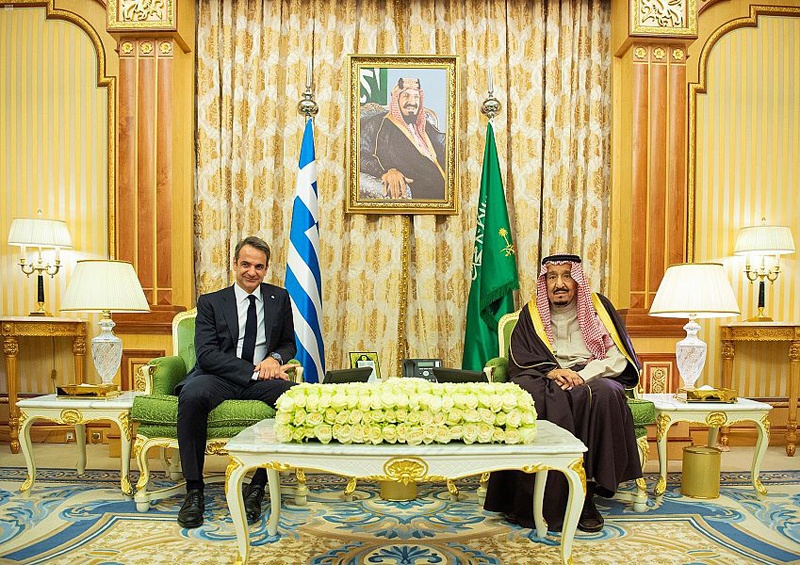

ATHENS: Greece will send some of its Patriot defense missiles to Saudi Arabia under a program involving the US, Britain and France, the government spokesman said yesterday. Athens will deploy the missiles at Saudi cost "to protect critical energy infrastructure", government spokesman Stelios Petsas told reporters. "The deployment contributes to energy security, promotes our country as a factor of regional stability and strengthens our ties to Saudi Arabia," Petsas said, adding that talks on the move began in October. He did not give a date for the deployment. The US, Britain and France are part of the same initiative and Italy is likely to join, the spokesman said.
The announcement came as Greek Prime Minister Kyriakos Mitsotakis was on a Middle East tour for investment talks with the governments of Saudi Arabia and the United Arab Emirates. He visited Riyadh on Monday and was in Abu Dhabi yesterday. "As a defensive system, this constitutes no threat to other countries in the area," Petsas said. Earlier this week Petsas said that "around 130 personnel" would accompany the missiles. Greek opposition parties have condemned the move as dangerous "adventurism". "This would be a Greek military presence outside the Mediterranean for the first time in decades," leftist Eurodeputy Dimitris Papadimoulis tweeted in January.
Meanwhile, Iran wants to resolve differences with its Gulf foes Saudi Arabia and the United Arab Emirates "as quickly as possible", Tehran's ambassador to Iraq said in remarks published yesterday. Ambassador Iraj Masjedi said top commander Qassem Soleimani, killed at Baghdad airport by a US drone strike last month, was carrying a message setting out Iran's position on possible rapprochement with Saudi Arabia, the Iraqi state news agency reported.
"Tehran welcomes Iraq's role in trying to solve differences between Iran and Saudi," Masjedi was quoted as saying, referring to recent Iraq efforts to mediate between the regional rivals, expressing Iran's "wish to resolve differences and challenges with Saudi and the UAE as quickly as possible". Masjedi made his remarks in an interview with the agency, which published excerpts in Arabic.
Iran has long been at odds with US Gulf Arab allies. Washington blamed a series of attacks against oil interests in the Gulf last year on Iran, and the killing of Soleimani brought the region to the brink of war. Soleimani's message that he was meant to deliver when he arrived in Baghdad on Jan 3, the day he was killed, set out Tehran's position on "fighting terrorism and achieving peace and security in the region", Masjedi said.
A senior Saudi official said last month that he was not aware of any message carried by Soleimani for mediation efforts between Riyadh and Tehran. The killing of Soleimani struck a blow to Iran's regional strategy. Soleimani was the mastermind behind Iran's control, through proxy militia forces and political alliances, over a corridor of territory stretching from Tehran through Iraq to the Mediterranean via Syria and Lebanon. The United States says it is determined to counter Iran's influence in the region and has imposed economic sanctions on Iran's oil sector and allies abroad and targeted its paramilitary forces.
After Soleimani's killing alongside top Iraqi paramilitary commander Abu Mahdi Al-Muhandis, Iran launched at least 15 missiles at two bases hosting US forces in Iraq, causing traumatic brain injury to 50 US service members but no deaths. Masjedi said the attack on the sprawling Ain al-Asad base, where the injuries were caused, was a response to Washington using "bases in the region … and choosing Iraqi territory" to kill Soleimani - a suggestion that the drone strike was launched from Ain al-Asad.
He said Iran would respond harshly to any future attacks by the United States. Masjedi also welcomed the naming last week of Iraq's Prime Minister Mohammed Tawfiq Allawi, who is accepted by Iran-backed Iraqi political groups but rejected by protesters who have staged months of anti-establishment demonstrations. - Agencies

